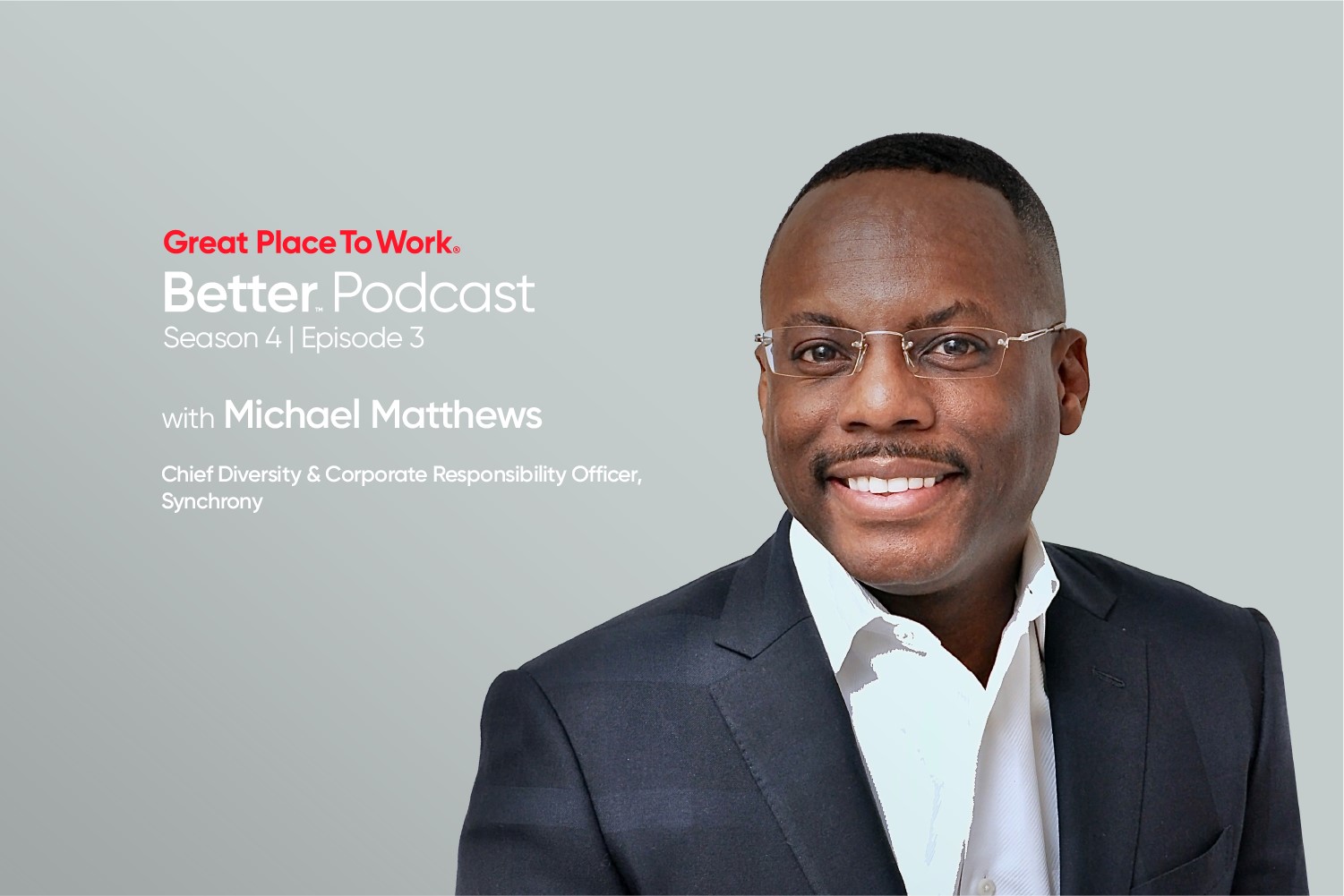
Best Workplaces, Parents at work
Image: Bank of America employee Jessica Cullen and her daughters Matilda (3) and Ramona (1).
Carmilla Tan isn’t just the head of global benefits at Bank of America.
She’s also the mother of a teenage daughter.
And that meant drinking her own champagne this past year—taking advantage of some of the same benefits she helped roll out to support the bank’s thousands of parent employees during the pandemic.
Carmilla participated in a virtual resilience training program that Bank of America offered through wellness firm Thrive Global. Through the training, she learned that “microsteps” can improve outcomes. The lesson prompted Carmilla to rearrange her daughter’s bedroom to create more of a remote classroom environment, which allowed Carmilla’s daughter to learn more effectively in her virtual courses.
“Just the little thing of moving the furniture,” Carmilla recalls. “It made all the difference.”
The resilience training that helped Carmilla support her daughter is just one of many investments Bank of America made to help its working parents adjust to a challenging year of unexpected childcare needs, remote learning and emotional stress.
For example, the Charlotte, North Carolina–based company has spent more than $200 million to help employees with children find back-up childcare during the pandemic, providing parent employees up to $100 per day to cover costs.
Given such generous assistance to employees with caregiving duties, it’s not surprising that Bank of America earned a spot on the Great Place To Work® Best Workplaces for ParentsTM 2020 ranking.
The list recognizes the 100 companies whose support for parents has stood out during an unprecedented and difficult year for parent employees. Technology firm Cisco topped the list, followed by Hilton, Comcast NBCUniversal, UKG (formerly Ultimate Software) and PricewaterhouseCoopers.
In conjunction with the list announcement, Great Place To Work also released the largest-ever study of working parents, with more than 440,000 parents surveyed at 1,244 U.S. companies. The report is the product of a partnership between Great Place To Work and Maven, the world’s largest virtual clinic for women’s and family health.
Our research discovered that the Best Workplaces are providing increased support for working parents and parents-to-be. In doing so, the report found, the Best Workplaces are not only helping their people, they are improving their business results through increased innovation, talent retention and productivity.
What’s more, creating a great work experience for parents can close the gender wage gap and bolster a company’s diversity and inclusion.
For example, the report found that 33% of Black mothers and 25% of White mothers are experiencing burnout, in comparison to 25% of Black fathers and 21% of White fathers.
In general, mothers are 28% more likely to experience burnout than fathers and are experiencing 2.4 million estimated additional cases of burnout due to unequal demands of home and work.
When companies reduce burnout, their employees are 20x more likely to stay—but those policies need to address the unique reasons for burnout.
Creating a great work experience for parents can close the gender wage gap and bolster a company’s diversity and inclusion
Learning about how different employees and employee groups are experiencing challenges such as parenting during the pandemic calls for a culture of listening.
You’ll find one at Bank of America.
Carmilla and her team didn’t respond to the COVID crisis by simply ramping up programs based on hunches. Instead, they gathered information from employees, including parent employees.
Bank of America surveyed its 10,000-strong Parents & Caregivers Employee Network to understand working parents’ challenges and keep offerings up to date.
What surfaced from the survey was a plea for help with remote education. With schools across the country closed, thousands of parent employees at Bank of America were suddenly thrust into the role of part-time teacher’s aide.
In response, the company offered a set of educational resources, including tutoring, streamlined access to Khan Academy’s online lessons, and “virtual field trips” to national parks and other destinations.
“You need to get feedback so we’re not designing in a bubble.”
Another benefit Bank of America provided to parent employees responded to a more obvious need: childcare. Not only did the company step up with a daily stipend, but it kept the process simple.
“Thanks to our company streamlining the process for teammates to provide their own back-up childcare and offering a reimbursement of up to $100 a day, it was super easy to sign up to find my own caregiver, and the reimbursement process was quick ― it literally took two minutes,” says Jessica Cullen, a relationship manager within Bank of America’s consumer & small business unit.
“You need to get feedback,” Carmilla says of benefits programming, “so we’re not designing in a bubble.”
Jessica, who has daughters ages 1 and 3, used Bank of America’s program to hire one of the teachers from her girls’ daycare who had lost income because of coronavirus-related closures. “My entire management team has been extremely supportive, especially with me having children at home,” Jessica says. “It makes me really proud to work for Bank of America.”
From the outset of the COVID pandemic through August 2020, Bank of America invested more than $100 million in back-up childcare for employees. The bank has since extended the program, providing over 1.7 million days of back-up care and an investment of more than $200 million in child and adult care reimbursements to offset costs for employees.
Some organizations have experienced tension between employees with children and those without kids during the pandemic, as questions about fair workloads and benefits have arisen.
Carmilla says this hasn’t been an issue at Bank of America. She says the organization has worked hard to communicate the wide range of programs it has that benefit all employees. This includes the resilience training that she herself benefitted from—it was open to parent and non-parent employees.
What’s more, Carmilla says, a compassionate spirit has carried the day this year at Bank of America.
“People generally care about each other,” she says. “Especially in these difficult times.”
Learn how Best Workplaces benefit by supporting parents in tough times
For more insights on how supporting working parents during COVID-19 and beyond is good for business, read our full report: Parents at the Best Workplaces.













